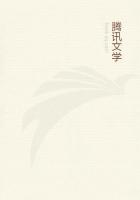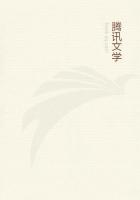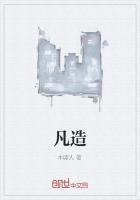He felt, indeed, almost like saying that they might have their own way later, if they would only allow to these first few days the clear light of ardent contemplation.For Rowland at last was ardent, and all the bells within his soul were ringing bravely in jubilee.Roderick, he learned, had been the whole day with his mother, and had evidently responded to her purest trust.
He appeared to her appealing eyes still unspotted by the world.
That is what it is, thought Rowland, to be "gifted," to escape not only the superficial, but the intrinsic penalties of misconduct.
The two ladies had spent the day within doors, resting from the fatigues of travel.Miss Garland, Rowland suspected, was not so fatigued as she suffered it to be assumed.She had remained with Mrs.Hudson, to attend to her personal wants, which the latter seemed to think, now that she was in a foreign land, with a southern climate and a Catholic religion, would forthwith become very complex and formidable, though as yet they had simply resolved themselves into a desire for a great deal of tea and for a certain extremely familiar old black and white shawl across her feet, as she lay on the sofa.
But the sense of novelty was evidently strong upon Miss Garland, and the light of expectation was in her eye.She was restless and excited; she moved about the room and went often to the window;she was observing keenly; she watched the Italian servants intently, as they came and went; she had already had a long colloquy with the French chambermaid, who had expounded her views on the Roman question;she noted the small differences in the furniture, in the food, in the sounds that came in from the street.Rowland felt, in all this, that her intelligence, here, would have a great unfolding.
He wished immensely he might have a share in it; he wished he might show her Rome.That, of course, would be Roderick's office.
But he promised himself at least to take advantage of off-hours.
"It behooves you to appreciate your good fortune," he said to her.
"To be young and elastic, and yet old enough and wise enough to discriminate and reflect, and to come to Italy for the first time--that is one of the greatest pleasures that life offers us.
It is but right to remind you of it, so that you make the most of opportunity and do not accuse yourself, later, of having wasted the precious season."Miss Garland looked at him, smiling intently, and went to the window again.
"I expect to enjoy it," she said."Don't be afraid; I am not wasteful.""I am afraid we are not qualified, you know," said Mrs.Hudson.
"We are told that you must know so much, that you must have read so many books.Our taste has not been cultivated.
When I was a young lady at school, I remember I had a medal, with a pink ribbon, for 'proficiency in Ancient History'--the seven kings, or is it the seven hills? and Quintus Curtius and Julius Caesar and--and that period, you know.
I believe I have my medal somewhere in a drawer, now, but Ihave forgotten all about the kings.But after Roderick came to Italy we tried to learn something about it.
Last winter Mary used to read "Corinne" to me in the evenings, and in the mornings she used to read another book, to herself.
What was it, Mary, that book that was so long, you know,--in fifteen volumes?"
"It was Sismondi's Italian Republics," said Mary, simply.
Rowland could not help laughing; whereupon Mary blushed.
"Did you finish it?" he asked.
"Yes, and began another--a shorter one--Roscoe's Leo the Tenth.""Did you find them interesting?"
"Oh yes."
"Do you like history?"
"Some of it."
"That 's a woman's answer! And do you like art?"She paused a moment."I have never seen it!""You have great advantages, now, my dear, with Roderick and Mr.Mallet,"said Mrs.Hudson."I am sure no young lady ever had such advantages.
You come straight to the highest authorities.Roderick, I suppose, will show you the practice of art, and Mr.Mallet, perhaps, if he will be so good, will show you the theory.As an artist's wife, you ought to know something about it.""One learns a good deal about it, here, by simply living," said Rowland;"by going and coming about one's daily avocations.""Dear, dear, how wonderful that we should be here in the midst of it!"murmured Mrs.Hudson."To think of art being out there in the streets!
We did n't see much of it last evening, as we drove from the depot.
But the streets were so dark and we were so frightened!
But we are very easy now; are n't we, Mary?""I am very happy," said Mary, gravely, and wandered back to the window again.
Roderick came in at this moment and kissed his mother, and then went over and joined Miss Garland.Rowland sat with Mrs.Hudson, who evidently had a word which she deemed of some value for his private ear.
She followed Roderick with intensely earnest eyes.
"I wish to tell you, sir," she said, "how very grateful--how very thankful--what a happy mother I am! I feel as if I owed it all to you, sir.
To find my poor boy so handsome, so prosperous, so elegant, so famous--and ever to have doubted of you! What must you think of me?
You 're our guardian angel, sir.I often say so to Mary."Rowland wore, in response to this speech, a rather haggard brow.
He could only murmur that he was glad she found Roderick looking well.
He had of course promptly asked himself whether the best discretion dictated that he should give her a word of warning--just turn the handle of the door through which, later, disappointment might enter.
He had determined to say nothing, but simply to wait in silence for Roderick to find effective inspiration in those confidently expectant eyes.
It was to be supposed that he was seeking for it now; he remained sometime at the window with his cousin.But at last he turned away and came over to the fireside with a contraction of the eyebrows which seemed to intimate that Miss Garland's influence was for the moment, at least, not soothing.She presently followed him, and for an instant Rowland observed her watching him as if she thought him strange.














